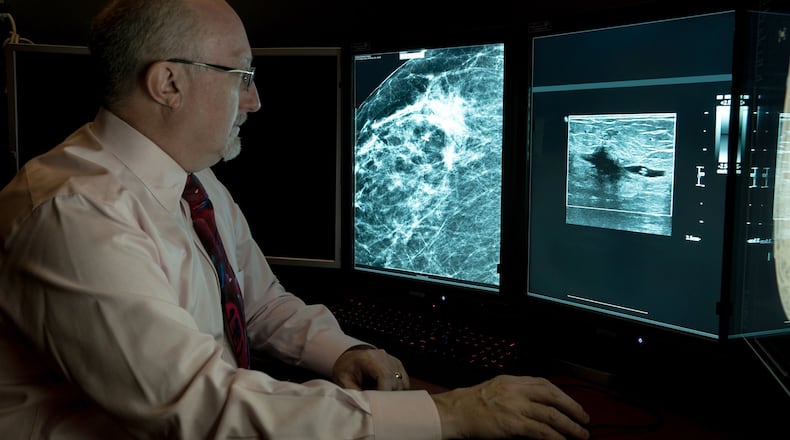This change could result in 19% more lives being saved, according to the task force.
“It’s a big thing for them to do this,” said Dr. William Meyers, a radiologist with Kettering Health.
Kettering Health follows the recommendations of the American College of Radiology, Meyers said, which already recommends women start getting mammograms at age 40. The U.S. Preventive Services Task Force can set the tone, though, for what Medicare, Medicaid, and private insurers will follow.
Making sure breast cancer screenings are covered by medical insurance is something doctors deal with more than they would like to, Meyers said. He is hopeful, though, that insurance companies will follow these recommendations.
“The insurance companies hopefully will listen to that,” Meyers said.
These recommendations come as doctors are finding breast cancer more in younger patients, who also tend to have more aggressive cancers. Meyers believes doctors will continue to uncover breast cancer among younger and younger patients.
“Right now, 6% of all breast cancers in women are actually found under the age of 40,” Meyers said. “We’re actually got a whole subgroup of women that we’re not really screening yet that do get breast cancer, and those cancers in younger women tend to be usually the more invasive and faster growing cancers.”
Statistics show Black women are 40% more likely to die of breast cancer than white women despite experiencing relatively equal incidence rates. Black women have a two-fold higher risk of aggressive breast tumors and a higher risk of genetic mutations, according to the American College of Radiology. Ashkenazi Jewish women also have increased risks of having inherited gene mutations.
Prior to age 50, minority women are 127% more likely to die of breast cancer, 72% more likely to be diagnosed with breast cancer, and 58% more likely to be diagnosed with advanced-stage breast cancer, according to the American College of Radiology.
The American College of Radiology recommends all women, but particularly for Black and Ashkenazi Jewish women, to have a risk assessment done by age 25 to determine if screening earlier than age 40 is needed.
The task force also called for more research to understand the underlying causes and what can be done to eliminate this health disparity.
“Ensuring Black women start screening at age 40 is an important first step, yet it is not enough to improve the health inequities we face related to breast cancer,” said task force vice chair Dr. Wanda Nicholson.
By the numbers
According to the American College of Radiology:
- One in six breast cancer diagnoses occurs in women in their 40s.
- Mammography has helped reduce breast cancer mortality in the U.S. by nearly 40% since 1990.
- One study shows mammography screening cuts the risk of dying from breast cancer nearly in half.
- Three out of four women diagnosed with breast cancer have no family history of the disease and are not considered high risk.
About the Author

